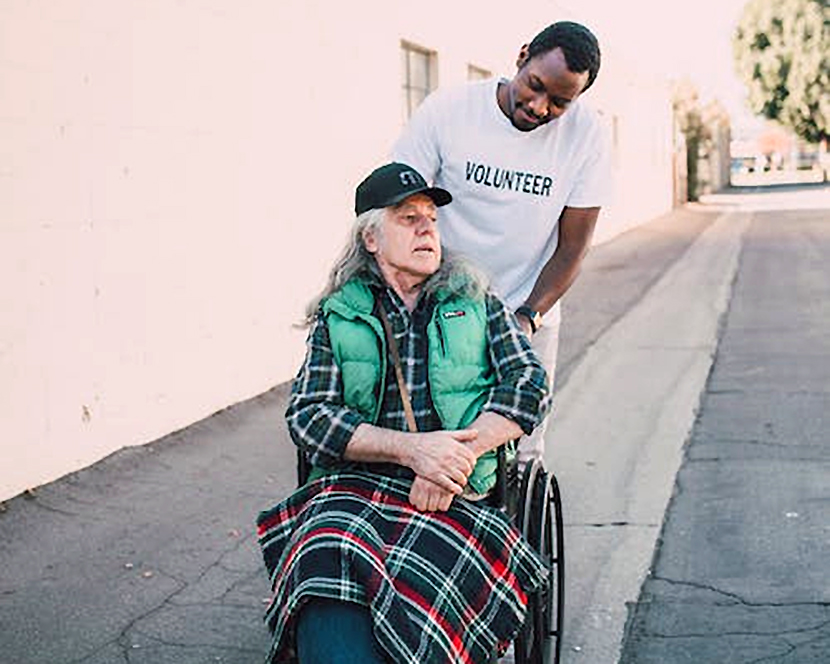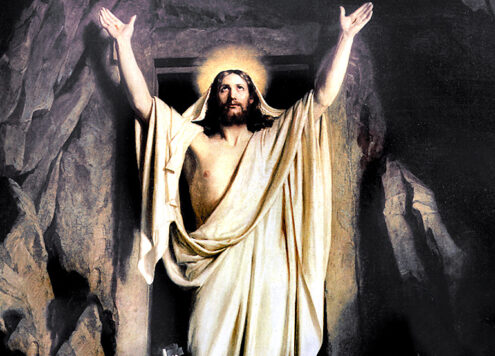The world would certainly be a better place if more people were generous. When you show generosity to others by offering them your time, money, food or any kind of assistance you are fulfilling the Golden Rule: “Do unto others what you wish them to do unto you.”
The Parable of the Workers in the Vineyard challenges us to live generously. God shows no partiality whatsoever, letting the sun shine on the just and the unjust, the rains fall on the good and the bad alike. He showers His generosity on everyone from the smallest to the greatest without exception. This is a difficult concept to grasp from a worldly perspective because it challenges the business model of success which, though not bad in itself, can do great harm to others if it ignores generosity. In the Parable of the Workers in the Vineyard, we come face to face with God’s generosity, a generosity that has no limits, none whatsoever.
Perhaps, it will help to understand this parable if I offer an example of how a farming community behaves with generosity to all its members.
Growing up in a rural, farming community in Ireland, as I have, has its advantages. When the crop is ready for harvest, the whole family would be out in the field working together. They would not work at the same pace or at the same time. The father and the older brothers would, most likely, be out in the field very early while the younger ones are still asleep. Mom and the younger ones would join Dad and the older ones out in the farm later. At the end of the day all would go home together. As supper is served, no one would suggest that everyone eat only as much as they earned according to the hours they worked. No, not at all. No one would complain, no one would be jealous for everyone had done his or her part, according to their ability.
The Parable of the Workers in the Vineyard (Matthew 20:1–16) presents a situation, not unlike that of a family farm. We read of a harvest in which some workers put in more time than others. That’s well and good. When pay time comes, they are all treated generously. So far so good. But the early workers, however, begin to complain and grumble unlike the family members on the farm? Why is this? The answer is clear. The norms of behavior, of contribution and reward, in the family and in God’s kingdom are different to those of society.
The question this parable poses is, do we see ourselves as a generous people with a common purpose or do we see ourselves as individuals out to grab for ourselves whatever we can get? We may call ourselves brothers and sisters in the Lord, but we often treat one another as rivals and competitors. We are inclined to adopt a strict business model rather than the generous, family model of relationships put forth in this parable.
This parable was addressed by Matthew to the Jewish Christians. God called them a long time ago to build the kingdom of God. Now, at an apparently late hour, God was calling the Gentiles also to work with them in the same vineyard of the Lord. The early-bird Jewish Christians saw themselves as superior to the Johnny-come-lately Gentiles because they had “borne the burden of the day and the scorching heat” (Matthew 20 : 12). The problem with Mathew’s Jewish audience was their difficulty in appreciating that God’s kingdom is for all peoples, Jews and Gentiles, and that He treats them all with equal generosity whether they be early-comers or latecomers, Jew or Gentile, Greek or Roman, Male or Female ( Galatians 3 : 28 ).
The kingdom of God is a family affair rather than a social affair. A society like the one we are living in is, regrettably, characterized by competition, rivalry, self interest, and, in its cruelest form, survival of the fittest. A true family, on the other hand, is characterized by a spirit of generosity rather than competition or rivalry. In this parable, we are called to reject a legalistic notion of the kingdom of God and see it for what it is, a family of equals where everyone is respected from the lowest to the highest. The important thing, whether we enter into the kingdom early or late, is how we respond to the Lord’s generosity. Are we generous to all others irrespective of race, sex, religion, color of skin, education or place of origin? The Lord, however, shows no partiality towards the highest or “the least among us.”
This is why Jesus says: “those who are last will be first, and those who are first will be last” (Matthew 20:16).
—Fr. Hugh Duffy











5 Comments
Jean-Pierre Kengne
We are a non-governmental civil society organization called Human Rigths and Forest Brain Africa (Hurifba) which works for Sustainable Development, the protection of human rights, education, health, the environment and nature. headquartered in Cameroon and abroad. Permanent member and observer at the IPCC on evolution and climate change. Hurifba has consultative status with the Economic and Social
Bartholomew Okere
Fr. Duffy, your catechesis on Mt 20:1-16 remains one of my favorite passages in the gospel of Matt.Your thesis & antithesis on the workers in the vineyard & their landowner showcased God’s awesomeness,generosity & mercy towards his creatures. Your reflection resonates to all & sundry in our society full of too much competition, rivalry, individualism & racism. Your wkly reflections has lot to say.
Hugh Duffy
Thanks, Bartholomew, for your interesting comments on my blog. How different our circumstances would be if only this simple message on generosity was properly understood and practiced. It would transform what we do, and bring joy to others as well as to ourselves.
Leonard Ntaate Mukasa
A tough teaching, but true. Jesus is the teacher! Parable indeed meant to disrupt our way of thinking.
Thank you, Fr. Duffy
Hugh Duffy
It disrupts, Leonard, many societal attitudes including that of the church.